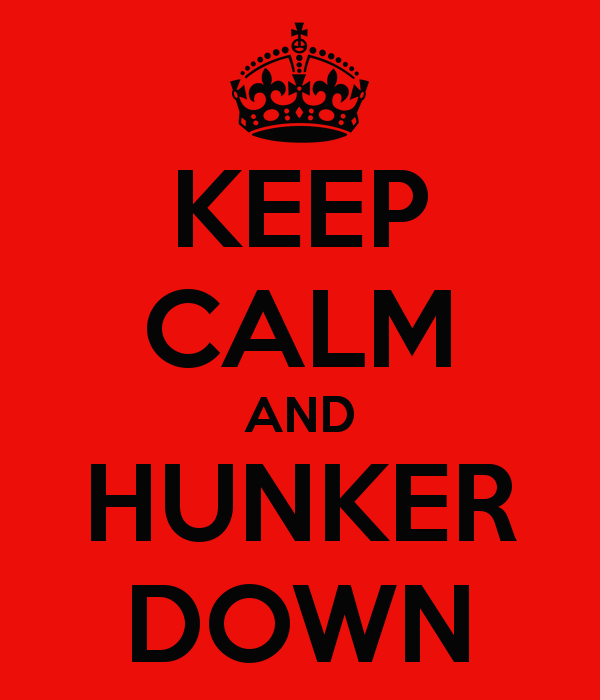Every hurricane season, two words pop up like a tropical depression in the Cape Verde Islands: hunker down.
As a survivor of Hurricane Rita, which smashed into Gulf Coast Texas in 2005, those words became as natural to me as “please” and “thank you.” We hunkered down and prepared to cover a storm that promised to be as devastating as Hurricane Katrina just three weeks before in nearby Louisiana. At the height of the storm, sweat-soaked and bone-weary, we ate stored food in the glow of flashlights, slept under office desks, and … hunkered down.
I’m a word guy. I can’t help it. I wondered: Fact is, nobody really knows. Like many phrases and words we use commonly, the origin is murky. I turned to one of my favorite wordsmiths, Michael Quinion, for at least a learned theory:
It sounds like the most typically American of phrases, but it seems originally to have been Scots, first recorded in the 18th century.
Nobody seems to know exactly what its origin is, though it has been suggested it’s linked to the Old Norse huka, to squat; that would make it a close cousin of old Dutch hurken and modern German hocken, meaning to squat or crouch, which makes sense. That’s certainly what’s meant by the word in American English, in phrases like hunker down or on your hunkers.
The Oxford English Dictionary has a fine description of how to hunker: “squat, with the haunches, knees, and ankles acutely bent, so as to bring the hams near the heels, and throw the whole weight upon the fore part of the feet.” The advantage of this position is that you’re not only crouched close to the ground, so presenting a small target for whatever the universe chooses to throw at you, but you’re also ready to move at a moment’s notice.
Hunker down has also taken on the sense of to hide, hide out, or take shelter, whatever position you choose to do it in. This was a south-western US dialect form that was popularised by President Johnson in the mid 1960s. Despite its Scots ancestry, hunker is rare in standard British English.”
Now you know … maybe.

